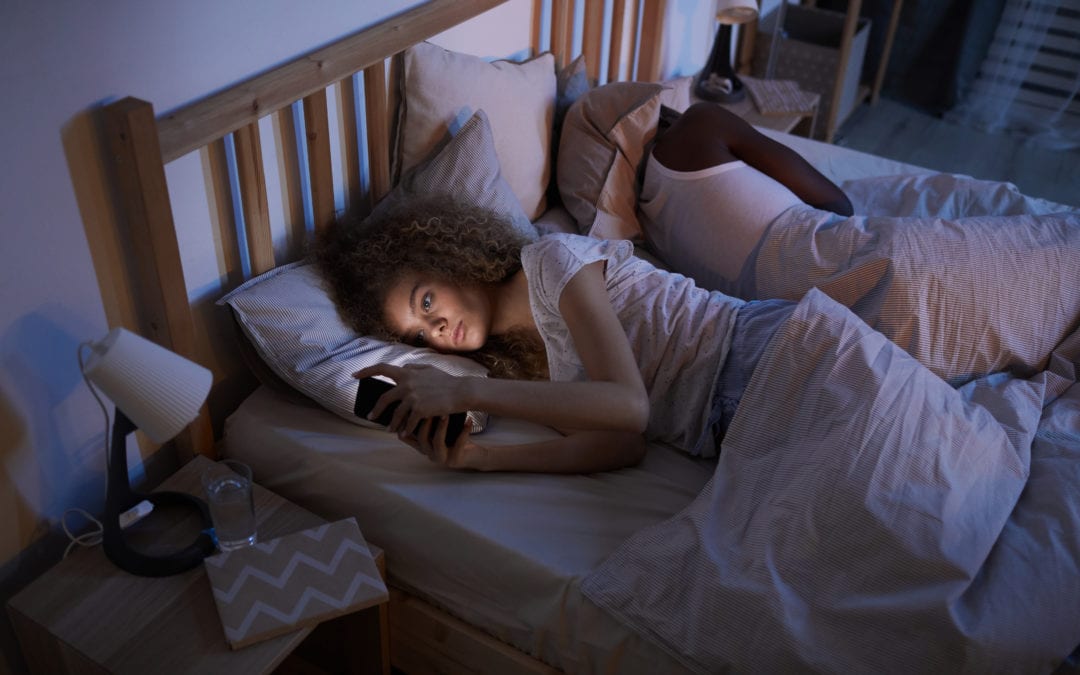Sleep is the driving factor in our daily lives. Have a great night of sleep and you’re likely to have an awesome day. Have a terrible night of sleep and you’ll be irritable, tired and hard-pressed to accomplish much of anything.
Healthy Bodies Need Sleep
But beyond just being grouchy, sleep is absolutely essential for your health. According to the U.S. Department of Health and Human Services, quality sleep can protect your mental health, physical health, quality of life, and safety. When you sleep your work works to supports healthy brain function that helps to improve learning and your mood. Physically, good sleep helps heal and repair heart and blood vessels, decreases your obesity risk, balances your hormones, controls your blood glucose levels and supports healthy growth and development.
Causes of Bad Sleep
There are several reasons for bad sleep. First, you simply may not get enough sleep (sleep deprivation). Secondly, you’re sleeping at the wrong time of day knocking your body’s natural clock out of sync. Thirdly, you don’t get all of the different types of sleep your body needs, and lastly, you have a sleep disorder that causes poor sleep. The first two may be managed with better sleep habits like shutting off devices an hour before bed, sleeping in a dark room, eliminating noise and keeping your home’s temperature cool. But the last two may require a medical diagnosis to determine if a sleep disorder exists.
Diagnosing Sleep Apnea
One of the most common sleep disorders is sleep apnea. Sleep apnea occurs when the muscles in the back of the throat that supports the soft palate, uvula, tonsils and tongue relax too much to allow normal breathing. The airway narrows or closes making breathing inadequate for 10 to 20 seconds and potentially lowering oxygen in the blood. The brain senses this inability to breathe and briefly rouses the sleeper so that the airway reopens.
Some symptoms include:
- Excessive daytime sleepiness
- Loud snoring
- An observed episode of breathing cessation during sleep
- Awakening with dry mouth or sore throat
- Morning headache
- Abrupt awakenings accompanied by shortness of breath
- Frequent urination at night
- Difficulty staying asleep
If these symptoms exist, your doctor may suggest a sleep study.
Participating in a Sleep Study
Family Health Care of Siouxland has its own state-of-the-art Sleep Center located in the Dakota Dunes. The Sleep Center is the only sleep lab in the Siouxland Area accredited by the American Academy of Sleep Medicine. It has advanced technology to conduct and interpret a wide range of sleep studies.
Patients come and sleep in comfortable hotel-like rooms while certified sleep technicians measure their physiological functions like eye movements, brain waves, heart rate and rhythm, muscle function, air flow through the nose and mouth, respiratory effort and oxygen levels are monitored.
And, because our Sleep Center is an outpatient facility, patients are not billed a facility fee like they would be if they had a sleep study completed at a hospital inpatient facility.
Sleep is such a necessary part of our lives and if you’re missing out on a good night’s rest talk to your doctor about the possibility of participating in a sleep study at our Sleep Center.


